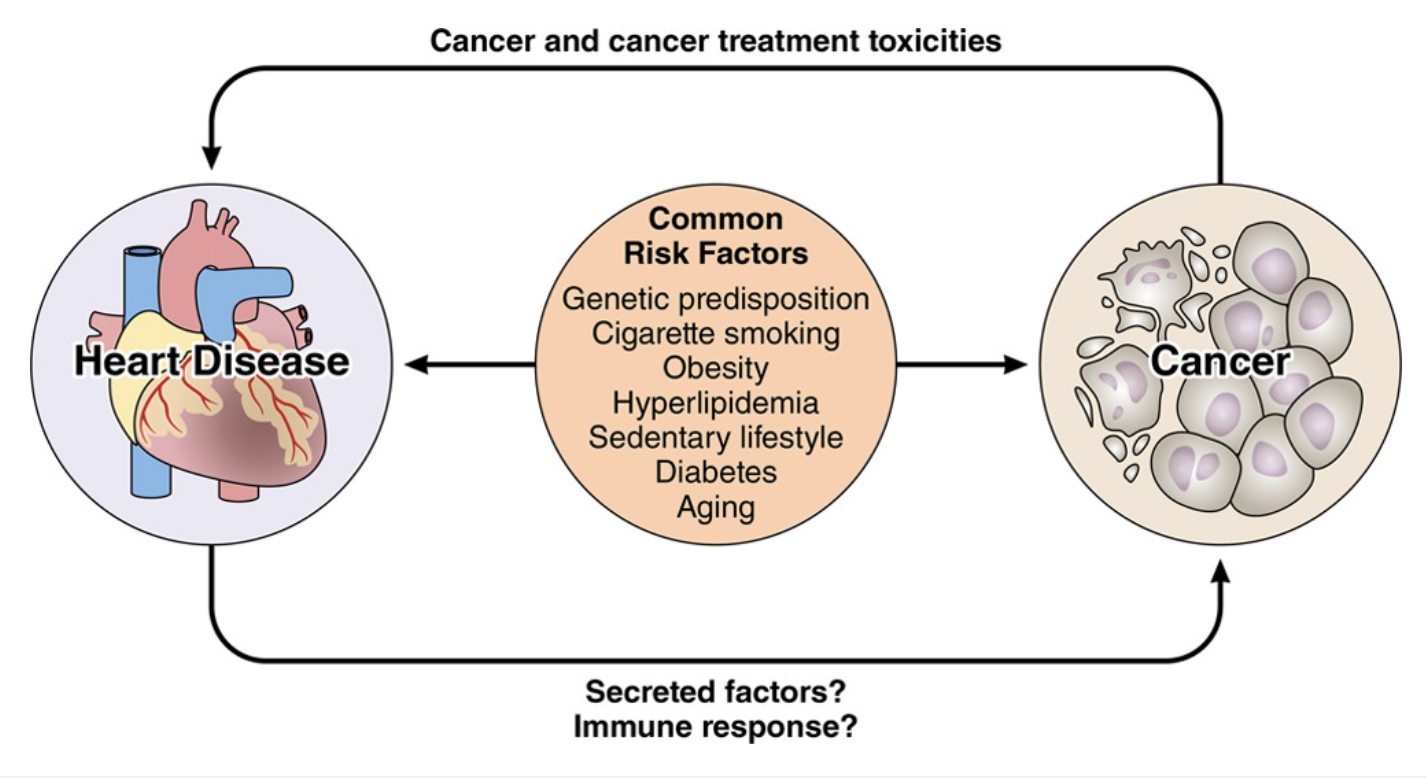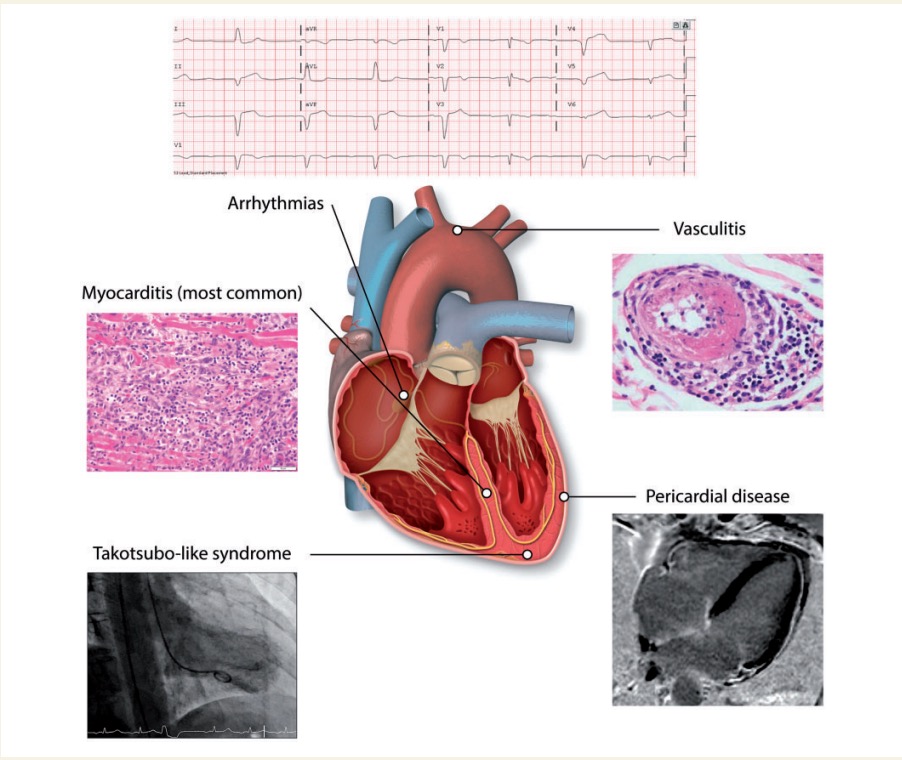Specific Treatment-Associated Sequelae
The UCSF Section of Cardio-Oncology and Immunology focuses on the cardiovascular care of cancer patients, particularly in relation to the toxic effects associated with targeted oncology therapies. We are actively investigating the underlying mechanistic pathways of these therapies that contribute to cardiovascular complications.
Intersection Between Cancer and Cardiovascular Disease

In addition to the toxicities of cancer treatments that cause cardiovascular disease, there are common risk factors that predispose patients to both cancer and cardiovascular disease. We also suggest an alternative pathway in which heart disease potentiates cancer.
Immune Checkpoint Inhibitors (ICI)
In the last decade, immunotherapies have transformed cancer care. Immune Checkpoint Inhibitors (ICI) unleash the immune cells to fight cancer and have been instrumental for the treatment of previously deadly cancer. Today, up to 50% of cancer patients are eligible for treatment with ICI. ICI, however, can lead to the development of several immune-related adverse events (irAEs) following or during treatment.
Acute cardiovascular adverse events have also been associated with treatment of ICI and can include myocarditis, pericarditis, vasculitis, arrhythmias, and cardiac and vascular issues. The UCSF cardio-oncology team has been pioneers in understanding the cardiac issues of ICI and other immunotherapies and is arguably the leading such program in the world. We have both research and clinical areas of focus and have been leading an international effort to understand these toxicities better.

Radiation Therapy
Radiation therapy uses high dose of radiation to kill cancer cells. When the damaged cancer cells die, they are broken down and removed by the body. However, radiation can also affect nearby healthy cells. Even though both healthy and cancerous cells are damaged and destroyed, the goal of radiation therapy is to destroy as few normal, healthy cells as possible.
Radiation therapy – especially radiation to the chest - can cause a number of cardiovascular problems, often developing years following therapy and when the patient has survived the initial cancer. At UCSF, we have a multi-disciplinary team addressing these radiation-associated side effects.

Ibrutinib and Cardiotoxicity
A subset of leukemias and lymphomas have been shown to respond to specific types of therapies called Bruton’s Tyrosine Kinase (BTK) inhibitors. These cancer types include chronic lymphocytic leukemia (CLL) and mantle-cell lymphoma (MCL). Examples of BTK inhibitors include ibrutinib, acalabrutinib and zanubrutinib. While Ibrutinib – which is the 1st generation drug - and other BTK inhibitors are highly effective treatments, cardiovascular issues may arise including arrhythmias, hypertension, and bleeding. Atrial fibrillation, a specific type of irregularity of the heart, is most problematic with this class of therapies.
At UCSF, we have developed protocols to help prevent and manage cardiac issues in cancer patients taking BTK inhibitors. In collaboration with other centers, we are starting studies to best monitor for these cardiotoxicities and to develop preventive and treatment strategies so that the patients can be optimally treated with the cancer drugs. We are also assessing whether these cardiac complications are drug-specific (e.g., ibrutinib has a higher risk of arrhythmia than acalabrutinib) or whether these cardiac issues are a class effect.
